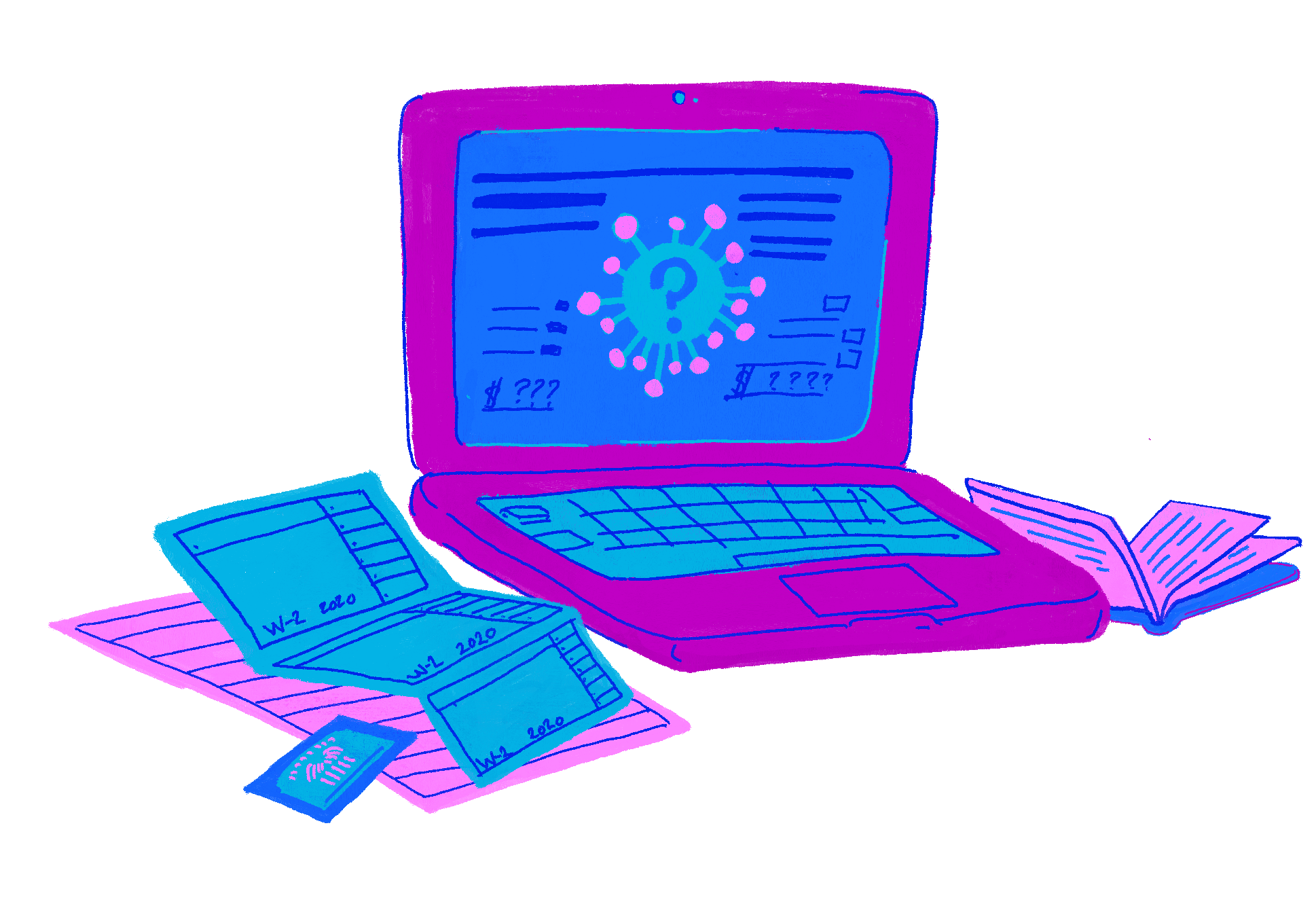As the 2020-2021 tax season is approaching, it is important to know how filing your taxes after a pandemic year may change and how different forms of relief granted this year affect taxpayers in Illinois. Since March, millions of people in the U.S. have applied for economic assistance from measures such as the Coronavirus Aid, Relief, and Economic Security (CARES) Act. More recently, people have begun to receive their payments from the second stimulus check within a year.
While the IRS extended tax filings in 2020 to July 5, as of publishing, the filing deadline this year is still Thursday, April 15.
 Due to the wide categories that COVID-19 relief falls under, it’s recommended that you file your taxes this year with extra support from programs and call in advance to note location changes, appointment times, and what documents to bring this year. While tax provisions are still being updated by the IRS, here are a few key things to note so far:
Due to the wide categories that COVID-19 relief falls under, it’s recommended that you file your taxes this year with extra support from programs and call in advance to note location changes, appointment times, and what documents to bring this year. While tax provisions are still being updated by the IRS, here are a few key things to note so far:
- You can file now
To speed up the process during the pandemic, the IRS recommends taxpayers file electronically with direct deposit as soon as possible. Taxpayers have been able to file their taxes since January 15, though the IRS will begin processing them on February 12. “This start date will ensure that people get their needed tax refunds quickly while also making sure they receive any remaining stimulus payments they are eligible for as quickly as possible,” the IRS Commissioner said.
- Unemployment benefits fall under taxable income
Most unemployment payments fall under gross income and are therefore taxable, except for certain disaster relief payments, death benefits, or compensation for injuries or sickness. In particular, the $600 federal unemployment compensation from the CARES Act and the $300 weekly payment from the Lost Wages Assistance (LWA) Program are subject to federal income tax.
You may consider filing Form W-4V to withhold 10 percent of your compensation for taxes and avoid a large future tax bill. To see if your withholding is higher or lower than you intend, you should use the IRS’s tax withholding estimator. For Illinois, you must also register to withhold your state income tax if you’re withholding federal income tax.
- If you received a loan from the Paycheck Protection Program (PPP), your expenses may not be tax deductible
Businesses who applied for PPP loans may be eligible for the amount to be forgiven if the funds were used for payroll, rent, mortgage interest, or utilities and their Form 3508 is approved. Forgiven loans will not be taxed. However, if the loan has not yet been forgiven, then the expenses from the loan have to be reported and are not tax deductible. The IRS recommends businesses to file for forgiveness as soon as possible.
- Freelancers may be classified differently for tax purposes
If you’ve worked for Uber, Lyft, Instacart, or freelanced for other companies this year, it is important to check whether you are an employee or an independent contractor to see if you need to file a Form 1099. Since freelance situations differ per company, you should also consult with your employer to determine which Form 1099 to file.
-

Illustration by Mell Montezuma If you didn’t receive your stimulus check, you may be eligible for a Recovery Rebate Credit
If you didn’t receive your Economic Impact Payment, or if your first check was less than $1200 ($2400 for married, $500 for each qualifying child or dependent) or your second check was less than $600 (plus $600 for each qualifying child), you can apply for a recovery rebate credit when you file a 2020 form 1040 or 1040SR, which will either increase your tax refund amount or lower the taxes that you owe. You may also file for a rebate if your child was born after you received your check.
This applies to both filers and non-filers who were eligible for the first and second stimulus check. Make sure to save your IRS Letter—Notice 1444 Your Economic Impact Payment—to be able to fill in the information you need.
- Immigrant families may be eligible to claim stimulus payments
The new coronavirus relief package amends previous provisions that any members from mixed status immigrant households are ineligible for stimulus checks. If you are a US citizen or a green card holder and filed joint taxes with your spouse who does not qualify for a social security number, you can now claim your $1200 and $600 check, along with the amount for dependents.
- Business owners may apply for COVID-19-Related Tax Credits
If you are a business owner who covered employee costs for paid sick leave, to stay at home to take care of their families, or encountered other work impediments due to COVID-19, you could receive 100 percent of up to ten days of the qualified sick leave wages and up to ten weeks of the qualified family leave wages on your federal tax returns.
You may review the Families First Coronavirus Response Act: Questions and Answers for extra information on employee leave entitlements.
- Payroll tax deferrals need to be paid by April 30
From September 1 to December 31, 2020, the Secretary of the Treasury issued a voluntary payroll tax holiday, allowing employees to suspend payroll taxes. While this will not affect how you file your taxes, it is important to note that from January 1 to April 30, your company will need to collect extra payroll taxes if they opted into the deferral.
Filing online this year may be more complicated, though the IRS is also providing options for people to file them for free. The IRS offers free tax assistance through the Volunteer Income Tax Assistance (VITA) and Tax Counseling for the Elderly (TCE) programs. Generally, qualifying individuals include people who make $57,000 or less per year, people with disabilities, or limited English-speaking taxpayers.
In Illinois, Ladder Up will offer free tax assistance services from January 30 to April 15. Tom Scott, a volunteer tax preparer at Ladder Up, notes that tax provisions above may still be subject to change, and include many individual specific cases in filing.
Yi Ning Wong is a master’s in public policy student at the University of Chicago, with a focus on increasing access to information about policy and decisions. She has previously reported for Injustice Watch and was a part of the Get My Payment Illinois government-supported initiative. This is her first piece for the Weekly.



